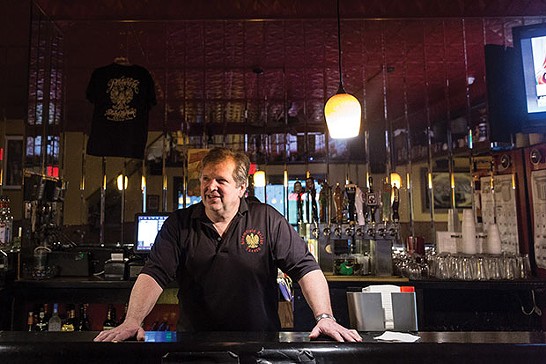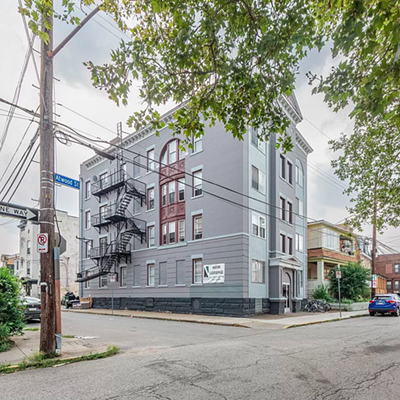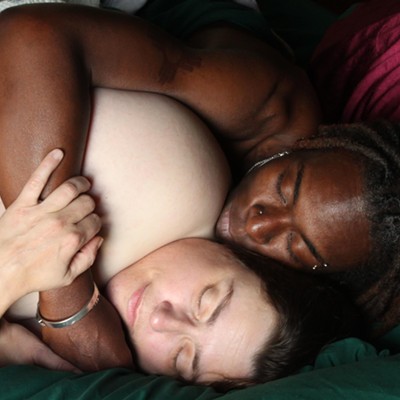
A few weeks ago, the tax man came to Howlers, a bar and small music venue in Bloomfield, asking for three years in back taxes. Those back taxes were the result of Pittsburgh’s amusement tax, which charges performers 5 percent on what is collected at the door.
Mary Jo Coll is the booker at Howlers and Hambones, in Lawrenceville. She said she was familiar with the tax and doesn’t object to it, but didn’t realize it applied to small venues like hers since artist takeaways at Howlers are pretty small. Technically, performers pay the tax, but the venues collect it to pay to the city.
“As long as it’s being applied across the board, we’ll deal with it,” says Coll. “It’s only hard to make the transition from a place that never takes a room fee from the bands, to telling every show they have to cough up a few bucks from a door that sometimes is barely $50. ... Some of these bands are kids traveling around sleeping in vans just trying to make enough cash to get gas to the next city.”
Pittsburgh’s amusement tax is not new. It has been on the books for at least 20 years, and news reports mention it going back to at least 1994. And the tax provides substantial revenue for the city. (The 2017 budget estimates the city will bring in $18 million from the tax this year.) When country artist Luke Bryan played at Heinz Field in 2014, the amusement tax amounted to $500,000 in city revenue, according to a TribLive article.
However, some smaller venue owners and artists take issue with the tax. They say it cuts into their already meager earnings from club shows, and creates additional barriers to a thriving local performing-arts scene, one that’s distinct from the large touring acts.
“I don’t know that it hurts the venues so much, other than it’s just one more damn thing to have to worry about,” says Coll. “But small artists, yeah, it hurts them.”
One of those local artists is Miguel Sague. He plays in the Latin-music band Guaracha, as well as Miguel’s Mariachi Fiesta. Sague says that when he plays club shows, he and his bandmates sometimes earn as little as $60 each, even before the amusement tax.
“What [the tax] does is that it leaves us, in terms of making money, in a desperate situation,” says Sague. “This tax places an additional burden on how we put food on our tables and provide for our families.”
Since playing clubs offers low payout, Sague generally avoids playing them, instead opting for private events where he and his band can earn up to $100-200 per performance each. (Private events are excluded from the tax.)
Mandy Kivowitz-Delfaver, a local jazz singer known by her stage name Phat Man Dee, avoids playing cover-charge club shows altogether, instead demanding to be paid up front.
She describes a typical scenario from when she used to play clubs that charged a cover. “If you get 50 people in the venue, that’s like $500. You pay for the sound man, you pay for the door person, and like $175 is gone. Then you have $325 left to split between 15 performers. Then you have to worry about the tax on top of that.”
But avoiding club shows, which are open to the public, hardly increases the liveliness of the city’s music scene. Kivowitz-Delfaver is still in favor of the tax, but suggests some of that tax revenue should support small local acts.
Paul Leger, of Pittsburgh’s Department of Finance, which collects the amusement tax, says the city enforces this tax fairly across all venues. The department determines who to tax by looking at ads for shows, information about performers and previous tax records of venues.
To show support for artists, Steve Frankowski, owner of Bloomfield Bridge Tavern, just pays the tax himself, instead of taking it out of the performers’ take, to avoid complication and ensure artists are making as much as they can.
“I know the bands aren’t going to pay it, so I have been paying it,” says Frankowski. He considers the amusement tax and other taxes at his bar, such as Allegheny County’s drink tax, “just the cost of doing business.”
Frankowski says his venue does four or five shows a month, and typically brings in about $1,000 in covers; that amounts to $50 in amusement tax per month. Frankowski added that last month he discovered the city was investigating his possible underpayment of the amusement tax. As a result he’s been more careful with headcounts.
He has no issue with the tax’s existence, but does worry it could be harming the growth of smaller acts. He says Bloomfield Bridge was one of the earlier venues to host Pittsburgh’s world-music fusion band Rusted Root, and that six months after the band played there, it was playing Three Rivers Stadium.
“I want to support bands,” says Frankowski. “Playing venues like this is how a lot of them got started.”

















